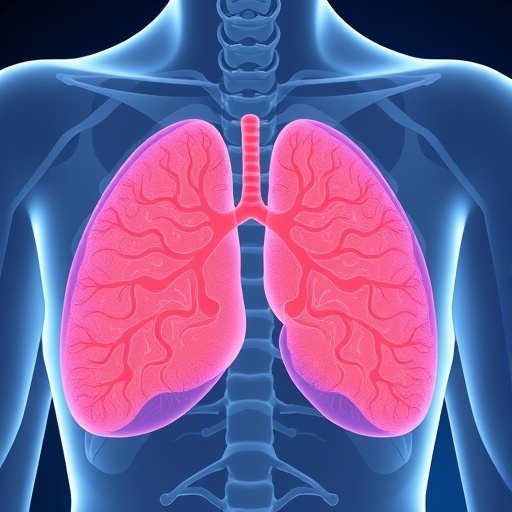
In an ambitious stride toward optimizing treatment for hormone receptor-positive (HR+)/HER2-negative advanced breast cancer, a recent comprehensive network meta-analysis has brought fresh insights into the comparative efficacy and safety of the four widely used CDK4/6 inhibitors combined with aromatase inhibitors (AI). Published in the upcoming 2025 volume of BMC Cancer, this pioneering study meticulously synthesizes data from phase II and III clinical trials to provide oncologists a clearer map for therapeutic decision-making in first-line treatments.
CDK4/6 inhibitors have revolutionized the landscape of breast cancer therapy by targeting critical cell cycle regulators, thus halting tumor cell proliferation. When combined with aromatase inhibitors—which reduce estrogen levels, a known driver for HR+ breast cancers—these drugs have substantially improved progression-free survival rates. Yet, until now, direct head-to-head comparisons among the four clinically approved CDK4/6 inhibitors—palbociclib, ribociclib, abemaciclib, and dalpiciclib—have been conspicuously absent, leaving oncologists reliant on indirect evidence and individual trial reports.
The present meta-analysis bridges this gap by applying fixed-effect consistency models to pooled data extracted from a systematic search of PubMed, Embase, and the Cochrane Library up to May 2024. This methodological framework allowed the researchers to generate a robust hierarchy of drug profiles, assessing key clinical outcomes such as progression-free survival (PFS), objective response rate (ORR), clinical benefit rate (CBR), and both all-grade and grade 3/4 adverse events (AEs).
Among the quartet of CDK4/6 inhibitors, dalpiciclib emerged as a frontrunner in maximizing progression-free survival, boasting a Surface Under the Cumulative Ranking (SUCRA) value of 77.9%. This metric suggests that patients treated with dalpiciclib plus AI therapy are likely to experience longer intervals without disease progression, offering a compelling clinical advantage. However, this efficacy comes at a cost, as dalpiciclib also registered the highest probabilities for both all-grade AEs and severe (grade 3/4) AEs, at 91.3% and an alarming 99.8%, respectively.
Conversely, abemaciclib distinguished itself in terms of response metrics, securing the top ranks for both ORR and CBR—89.3% and 68.9%, respectively. These indicators reflect the proportion of patients achieving significant tumor shrinkage or sustained clinical benefit, thus highlighting abemaciclib’s potent antitumor activity. Furthermore, subgroup analyses underscored abemaciclib’s superiority in prolonging PFS across diverse patient populations, reinforcing its versatility and therapeutic promise.
Safety profiles revealed an intricate balance between benefit and risk among the CDK4/6 inhibitors. Ribociclib demonstrated the lowest incidence of adverse events overall, presenting a safer option for patients who may be vulnerable to treatment-related toxicity. Interestingly, abemaciclib, despite its efficacy, had the lowest rate of severe adverse events among the four agents, suggesting a unique tolerability profile that might favor its use in certain clinical scenarios.
The study’s findings emphasize the absence of statistically significant differences in PFS among these inhibitors, which points to a nuanced therapeutic landscape where efficacy and safety must be carefully weighed. While dalpiciclib offers marginally superior control over disease progression, its heightened toxicity profile necessitates vigilant patient monitoring and may limit its suitability for some individuals.
These insights arrive at a crucial juncture as breast cancer treatment moves increasingly toward personalization. The ability to predict not only which drug will extend survival but also which regimen will minimize toxicity is instrumental in improving quality of life and clinical outcomes. Network meta-analyses like this one play a pivotal role in aggregating scattered data into actionable knowledge, guiding clinicians through the complexity of treatment choices.
It is particularly noteworthy that the absence of direct comparative randomized controlled trials (RCTs) has not impeded this analysis. Instead, innovative statistical modeling has enabled indirect comparisons that approximate real-world clinical scenarios, thereby enhancing the evidence base without waiting years for head-to-head trials to conclude. This methodological advance underscores the critical role of meta-research in precision oncology.
Moreover, this research highlights the importance of continuing pharmacovigilance and post-marketing surveillance, especially given the differential adverse event risks. Clinicians are reminded that therapeutic decisions in advanced breast cancer remain a balancing act, integrating tumor biology, patient comorbidities, and drug safety profiles.
Future investigations could extend these findings by integrating biomarker analyses to stratify patients who would benefit most from each CDK4/6 inhibitor. Additionally, exploring combination strategies, sequencing, and resistance mechanisms will be essential for harnessing the full potential of these targeted agents.
In sum, this comprehensive network meta-analysis offers a critical lens through which the four leading CDK4/6 inhibitors can be compared, delivering a sophisticated understanding of how each agent fares in efficacy and toxicity. Such knowledge not only enriches clinical guidelines but empowers oncologists and patients alike to make informed, personalized treatment choices in the fight against HR+/HER2- advanced breast cancer.
As the oncology community digests these findings, the message is clear: while no single CDK4/6 inhibitor outshines the others across all domains, nuanced differences in therapeutic benefit and safety profiles can now inform tailored approaches. Dalpiciclib’s robust PFS benefit positions it as a powerful option for patients with tolerable risk, whereas abemaciclib and ribociclib offer alternative balances of efficacy and safety.
This landmark analysis paves the way for an era of more strategic, evidence-driven use of CDK4/6 inhibitors, ultimately striving to transform clinical outcomes and patient experiences in advanced breast cancer management.
Subject of Research: Comparative efficacy and safety of first-line CDK4/6 inhibitors plus aromatase inhibitor therapy in HR+/HER2- advanced breast cancer
Article Title: Efficacy and safety of first-line CDK4/6 inhibitors plus AI therapy for patients with HR +/HER2- advanced breast cancer: a network meta-analysis
Article References:
Kang, Y., Han, B., Kong, Y. et al. Efficacy and safety of first-line CDK4/6 inhibitors plus AI therapy for patients with HR +/HER2- advanced breast cancer: a network meta-analysis. BMC Cancer 25, 843 (2025). https://doi.org/10.1186/s12885-025-14194-w
Image Credits: Scienmag.com
DOI: https://doi.org/10.1186/s12885-025-14194-w
Tags: abemaciclibaromatase inhibitorsCDK4/6 inhibitorsclinical trials meta-analysiscomparative efficacy of cancer drugsdalpiciclibfirst-line breast cancer therapyHER2-negative breast cancerhormone receptor-positive breast canceroncologist treatment decision-makingpalbociclibProgression-Free Survivalribociclib





